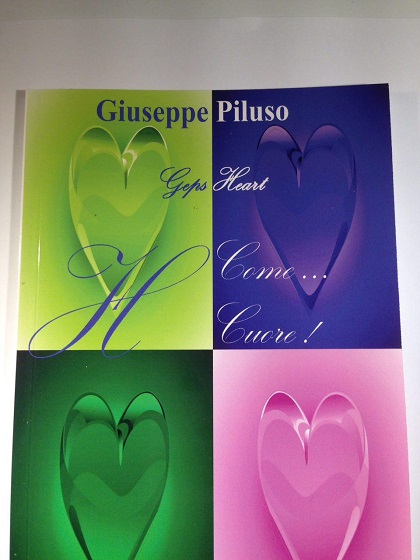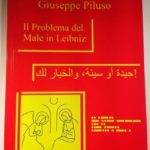They wrote about me… (2015 – 2017)
Giuseppe Piluso – Book Title: “H AS HEART”
The philosophical animus is, by its nature, led to analyze reality, and to grasp the details that, by assembling, make the whole.
The poetic animus synthesizes in the emotional word the very spirit of life, transmitting it in the form of a poetic message.
In Giuseppe Piluso the two aspects merge, giving rise to a poetics of great strength and originality.
“my thought bounce along
ibexing on the door.
of my conscience…”
It is precisely when thought seeks a way out by knocking on the conscience, recalling ethical values, the need for denunciation, deep empathy with the pain of others, that the author makes the fusion between rational and poetic, between moral tension and poetry, and makes it amazing us with the choice of terms never banal, with brave combinations, almost inventing another language, appropriate to the quality of its feeling.
He is able to deal with the most difficult issues, such as when it punctuates, letter by letter, that word that is not to be mentioned, and offers us hope of victory over the worst evil, inviting reaction and courage.
Even his pedagogical tension does not contrast with the poetic structure, but manages to cross it without corrupting it:
“Education has in its hands,
the little girl who reads has in the
“hands the child who respects…”
The choice of words gives rise to a powerful representation, far from certain soft concessions that, too often, we notice in emerging poets.
“Ruinous brick, chewed up
By human wrath that does not have peace…”
And he does so without ever falling into the didactic, lurking behind any explication, yet totally absent here, where poetry reigns unchallenged, while sending us the message that Piluso’s solid awareness feels the need to extend to all, so that they can participate in his profound vision of existence.
The attention to the feminine gives life to poems that are a hymn to the woman, in her many aspects. Woman-child, woman-fighter, sacred woman, raped woman, amiable and loved woman.
Reading Giuseppe’s poems is good for the soul: he knows evil, but he transmits to us his conviction of the victory of good, not entrusted to fate or to some invisible force, but to our personal desire to fight, to overcome, to win “Long live Life! “
The value of peace and brotherhood is the basis of this love for life and for people, which counterbalance a genuine suffering expressed with the usual originality of thought and word.
“I store radioactive waste, and I proceed, I feel my strengths are lacking
Sometimes in my head.
When I hear screams, when I listen
Facts and abominations and people who march and eat
On the foul…”
The author then lets us enter into his intimacy, telling us about his passion, in such a plastic way as to involve us deeply and let us enter his flesh and his heart in turmoil.
For all these skills expressed in this collection of poems, our hope is to see the poetry of Giuseppe Piluso grow, continuing to excite and provoke sincere vibrations, and offering the landscape of contemporary poets a new key to access a literary genre as widespread as, unfortunately, unable to reach the level where a personal expression can become poetry.
I believe that Giuseppe Piluso has shown us that he has taken a right and precious path, which will not fail to make him a well-known and appreciated author.
Emilia Rosati



